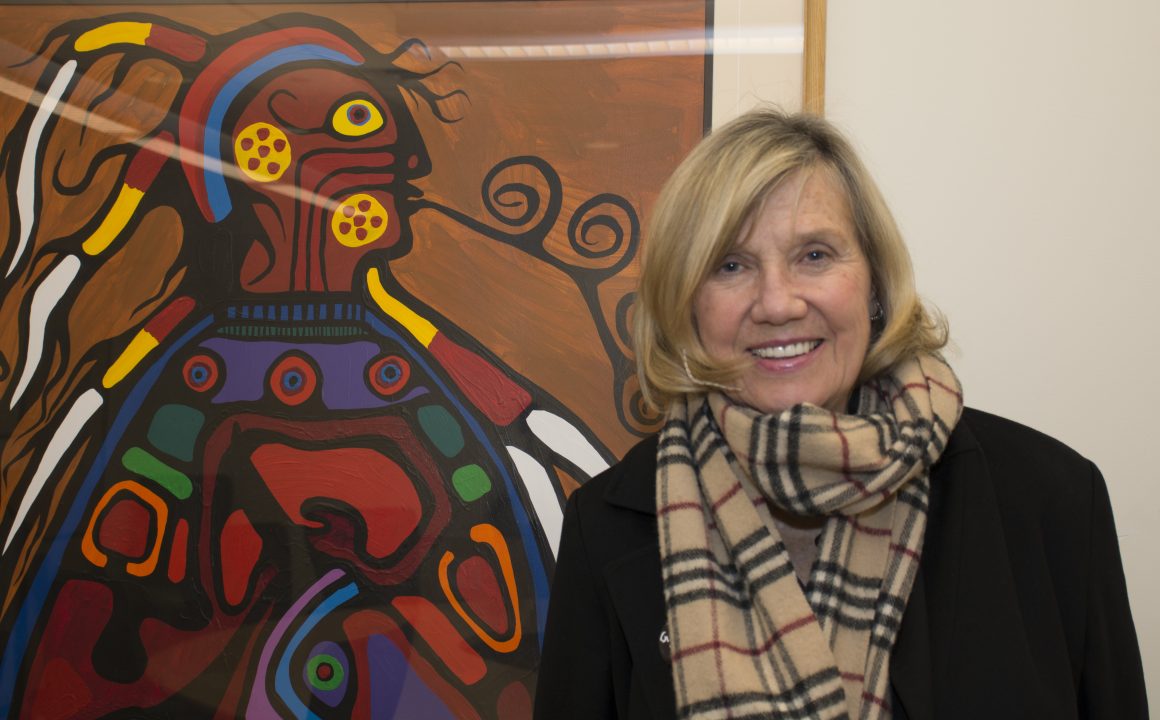
U of C offer course on residential school litigation
By Justin Schellenberg, November 30 2017 —
The University of Calgary Faculty of Law is currently offering a course on residential school litigation. The course, LAW 579, focuses on the history of Indigenous legal practices and how they relate to Canadian law.
“We realized that our curriculum here for law students was missing a lot of content to do with Indigenous peoples,” said Kathleen Mahoney, the professor who teaches the course. “The whole objective is to help students understand Indigenous reality in Canada, to help them understand that there are legal traditions that in many ways solve legal problems better than our British and French legal traditions do.”
Mahoney said that LAW 579 offers a unique experience for students through its material and teaching methods.
“We use a lot of outside resources, elders and Indigenous philosophers who are helping us put together the course structure and teach the course,” Mahoney said. “It’s all about equipping our students, not just with interesting philosophical ideas, but actual tools — practical legal tools that they can bring to the public that they serve.”
Chad Haggerty, a former police officer of Métis descent and U of C law student, said the course has helped to inform him of the adverse conditions many Indigenous communities continue to suffer through.
“It gives me a better understanding of how and why some of the things in my home community and some of the things in Aboriginal communities I’ve worked in are as they are,” Haggerty said. “It gives me an insight with respect to why social conditions that we today exist and persist.”
Haggerty said the impact of residential school system is an important part of Canadian history that should be remembered for what it was.
“We can’t forget that the plight of Indigenous Canadians wasn’t an accident. It was a definite structured plan engaged in by the Canadian government,” Haggerty said. “What we are seeing today is a byproduct of that.”
Some institutions across Canada are now looking at addressing some of the 94 calls to action that came out of the Truth and Reconciliation Commission, which examined the Government of Canada’s discriminatory treatment of Indigenous youth in residential schools. The U of C is among those institutions, having released the Indigenous Strategy this year that aims to address some of the issues facing Indigenous people on campus.
Mahoney said that the new law course is a good step towards that goal, but adds more needs to be done.
“I don’t think that just because you do a ceremony or you acknowledge the land that our university is situated on as Treaty land is reconciliation,” Mahoney said
Mahoney said that for reconciliation to move forward, the university will need to fully commit to putting in the time and effort to see it through.
“It’ll be very interesting to see how the university progresses and evaluates itself going forward and evaluates itself in consultation with the Indigenous communities of Alberta to see what they have to say about the progress,” Mahoney said. “I think it’s going to be imperative to continue to involve our Indigenous population in Alberta with the progress. Otherwise, I don’t think we’ll make progress.”
